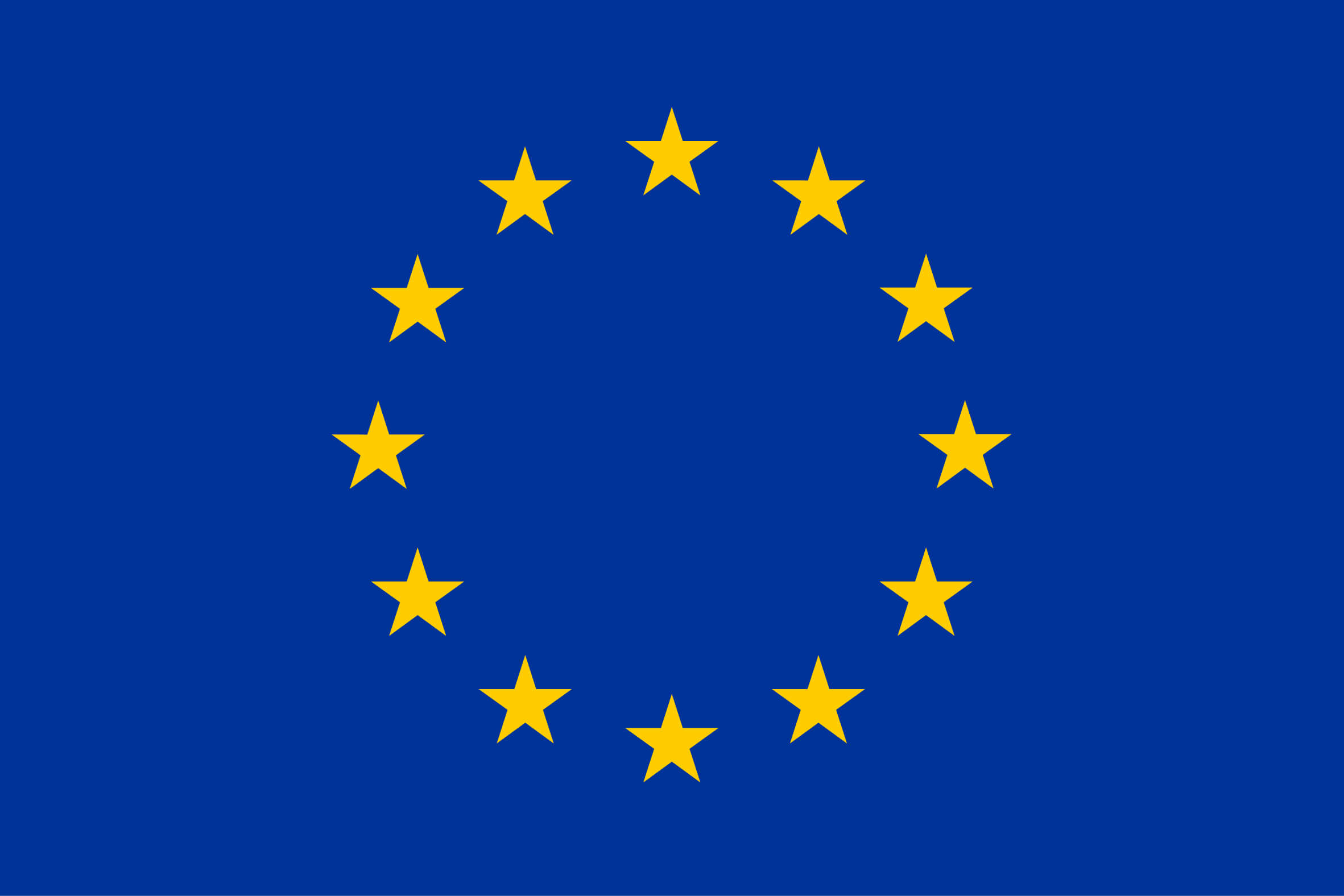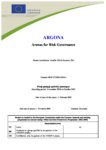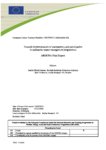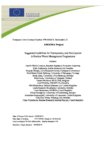ARGONA: Arenas for Risk Governance
The ARGONA (Arenas for Risk GOverNAnce) project was a three year EU-funded research project started in 2006 which explored application of the concepts of public participation and transparency in nuclear waste management programmes. The project included both theoretical and applied aspects and delivered a number of observations and recommendations on the role of participation and transparency in the arena of radioactive waste management.
Overview
Project Dates: 01/11/2006 – 31/10/2009
Project Status: Closed
Website: www.argonaproject.eu (now taken down)
The ARGONA project demonstrated how new approaches to participation and decision-making transparency may be implemented in nuclear waste management programmes and how public participation intersects with political and legal systems.
The project studied the institutional and cultural context within which the processes of participation and transparency take place and considered relevant social and political theory to inform the development of recommendations.
ARGONA also studied how the processes of participation and transparency take place in the real world. This included considering case studies from Czechia, Finland, Sweden and the UK. The ARGONA project also provided a framework for the practical implementation of participation and dialogue approaches to the issue of repository siting in Czechia. The process engaged with number of different groups, in particular a reference group that included representatives from communities, industry, local government, regulatory bodies and non-governmental organisations (NGOs). The reference group undertook a series of meetings and public hearings that re-started the debate on repository siting investigations in Czechia.
The ARGONA project produced a series of guidelines against which the fundamental concepts of participation and transparency were set. These included early public involvement, trust and the development of good relationships.
Objective
The primary objective of the ARGONA project was to demonstrate how participation and transparency could be implemented in radioactive waste management programmes. The ARGONA project also specified the following specific operational goals:
- To map policy-making structures within the EU in general and in the participating countries in particular.
- To clarify the roles of the deliberative and the transparent approaches in policy-making structures.
- To further implement the RISCOM model in Europe.
- To test a number of approaches to stakeholder participation within the Czech system.
- To disseminate good risk communication techniques and strategies across national borders, and to specify circumstances that require more specific and unique national or group considerations.
- To improve the understanding of how information systems, such as ERMON, can be used for effective risk communication.
- To develop a framework for how behavioural sciences findings and more technical approaches can be integrated in risk communication.
- To improve the knowledge of how different approaches to stakeholder participation can enhance public engagement and involvement.
- To increase the awareness among decision makers and other stakeholders of the roles of “mediators” of public participation methods, so that their advice can be effectively reviewed before participation methods are implemented.
- To produce guidelines for strengthening existing policy by the application of novel approaches to participation and transparency in nuclear waste management.
- To disseminate the ARGONA approaches and results to other policy-making areas, such as biotechnology, oil industry and other energy related areas.
Results
Two fundamental principles of the ARGONA project were that participation and transparency are key elements in effective risk governance. The project successfully demonstrated this by testing how participation and transparency can be implemented in nuclear waste management programmes. The project consisted of a series of work packages that started with an analysis of the policy-making structures that existed within the EU, including EU directives and national nuclear safety and environmental legislation. The project then defined and analysed the three arenas of transparency (as provided by the RISCOM Model). It investigated how the approaches of transparency and deliberation relate to each other and also how they relate to the political system in which decisions, for example on the final disposal of nuclear waste, are ultimately taken.
The project studied the role played by mediators, who facilitated the engagement of the public with nuclear waste management projects. In addition, the mediators studied the conduct of public meetings and discussions, the latter being models of communication used as part of the process of deliberation and transparency. Further, the project investigated how good risk communication may be organised, taking cultural aspects and different organisations into account. A major part of the project was to test and apply approaches to transparency and participation by using the RISCOM model and other approaches within different organisational settings. Finally, the ARGONA project produced practical guidance on ensuring transparency and participation in nuclear waste management programmes.






